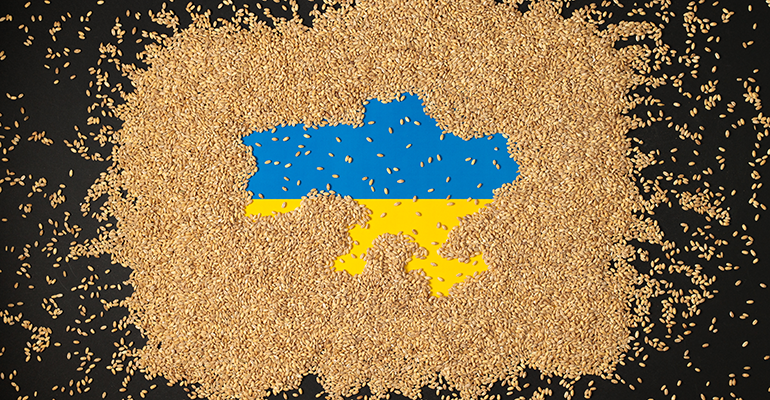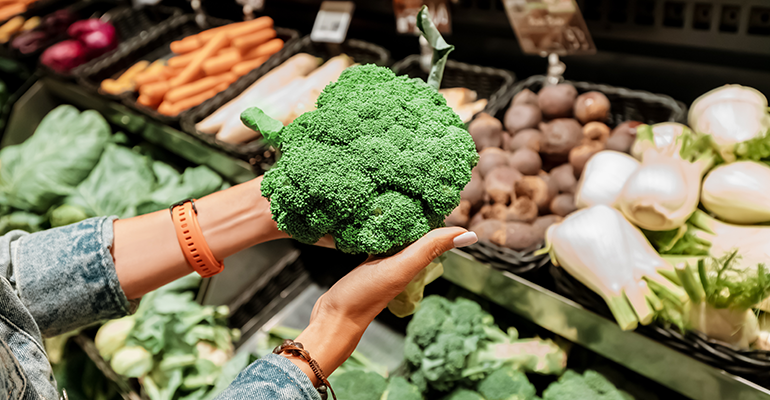Welcome to SJGLE.com! |Register for free|log in
Welcome to SJGLE.com! |Register for free|log in

Related Searches: Tea Vitamin Nutrients Ingredients paper cup packing
In the survey by EIT Food, an EU body that promotes startups and innovation in the food system, of 5,000 consumers in 10 European countries, 54% think the war has increased food prices, with 55% believing the war’s economic and supply chain effects have made food production more vulnerable.

© AdobeStock/Kyrylo
Meanwhile, 55% of consumers state they have seen significant price increases in red meat, a 52% rise in fish, and 51% in dairy.
Nearly half (48%) of those surveyed believe the war has enabled food retailers and manufacturers to make more profit.
The new study, entitled: ‘Changes in food behaviour in times of crisis,’ revealed that consumers are either buying less, buying cheaper brands or shopping at cheaper stores.
Almost four in 10 consumers (37%) report buying less red meat, while a third are buying less fish and poultry (33% for each).
Consumers are also looking to save money, with around one in 10 (12%) stopping the purchase of convenience foods, and 10% having stopped buying alcoholic beverages.
Meanwhile, a third of consumers say they have switched to buying cheaper cereal and dairy brands (35% and 33% respectively).
“The ongoing Russian war against Ukraine has brought into sharp focus just how fragile our food system can be,” said Dr Andy Zynga, CEO of EIT Food, which provided funding for the survey.
“We urgently need to scale and support innovation to address supply chain issues and ensure that we are producing enough affordable, nutritious food for all; however, we must do so sustainably, fairly, and efficiently.
“In order to meet and prevent future challenges, we have to build a system that puts resilient, future-proof and affordable solutions at its heart.”
“The crisis in Ukraine and global economic downturn present unique and considerable threats to the European food system,” said Klaus Grunert, professor of marketing at Aarhus University and Founder and Director of the MAPP Research Centre.
“We hope that this new, comprehensive research will empower decisionmakers to craft informed and timely policies that adequately tackle mounting consumer concerns regarding spiralling food costs.
“It is also important that policymakers continue to uplift the significant progress made by consumers to make more mindful, healthy and sustainable food choices as we continue to address the growing obesity and sustainability challenges of our time.”
 © AdobeStock/EdNurg
© AdobeStock/EdNurg
The survey, conducted in Spain, Sweden, Germany, UK, Poland, Italy, France, Greece, Finland, and Romania in August 2022, also highlights an increase in consumer mindfulness.
Around half (52%) confirm they are inspecting prices more so now than pre-pandemic – a rise from 31% in 2020.
Just over 4 in 10 (41%), say they are making less unplanned purchases than before, an increase from 26% back in 2020.
Similarly, 4 in 10 (40%) are also paying more attention to use-by dates or taking note of labels to increasingly compare products (39%).
The survey also uses the findings to group European consumers into five cooking and eating categories.
A third (33%) say they now pay more attention to food prices, with another third (32%) saying they pay greater attention to labels or seek out new food innovations.
The survey, led by Aarhus University in Denmark, follows up research in 2020, which suggested Covid-19 lockdown measures may have caused lasting behaviour changes in food consumption.
The research detailed how COVID-19 has changed the way people thought about, purchased, planned and consumed food with shoppers reported buying more in almost every food category.
Nearly half of consumers reported an increase in online shopping (45%); bulk purchases (47%); and carefully planned shopping trips (45%).
E-newsletter
Tags